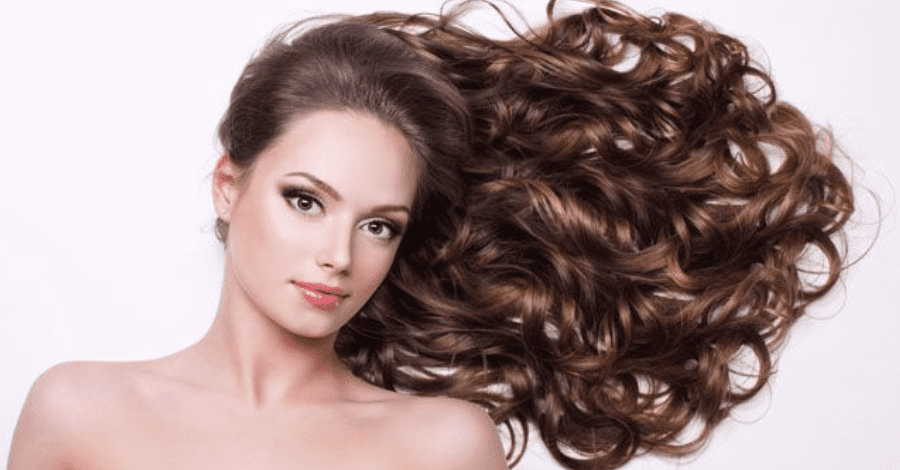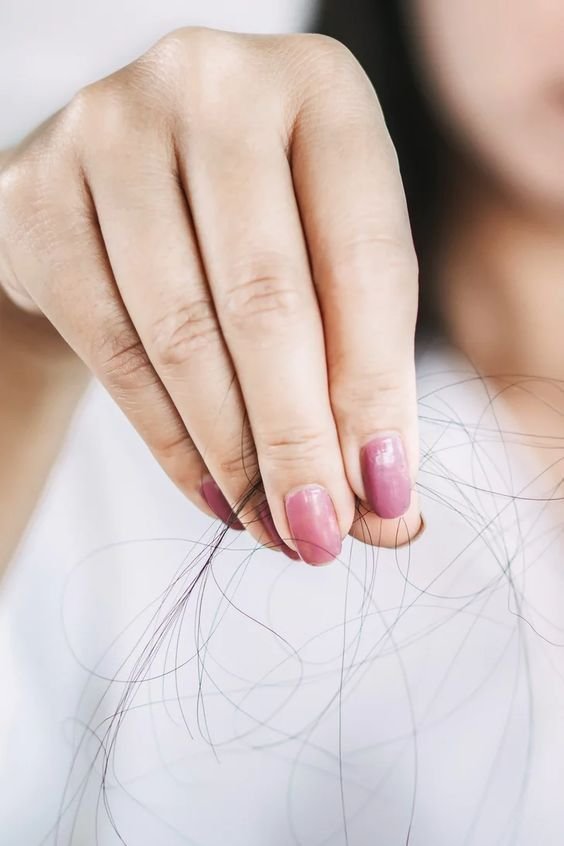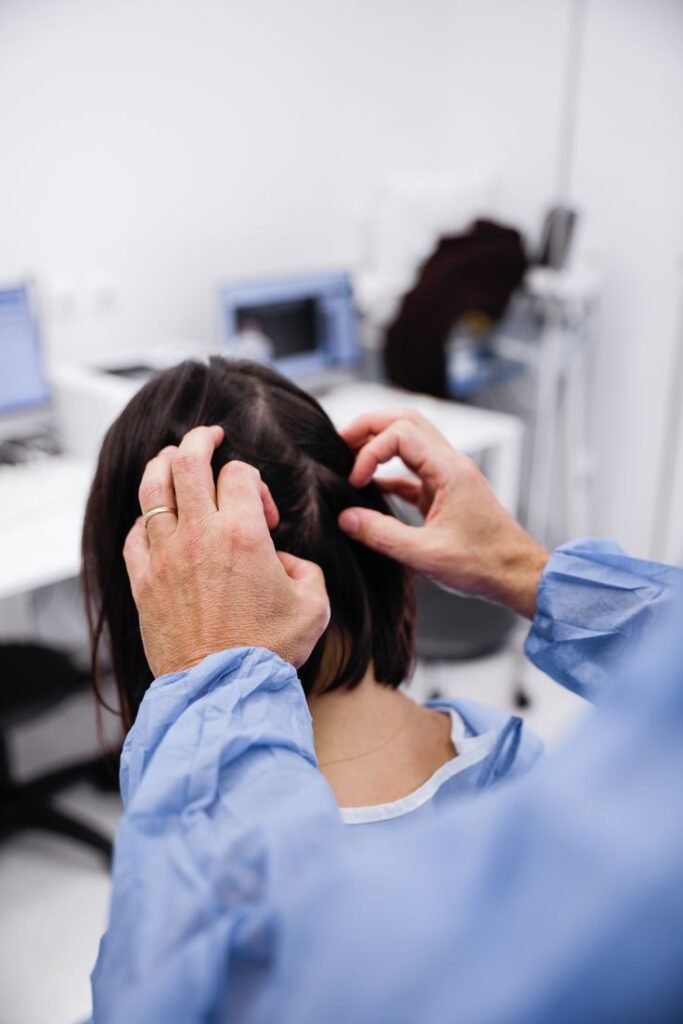The Ultimate Guide to Hair Loss Treatment in 2024

Hair loss treatment, Hair loss can be a distressing experience, affecting self-esteem and overall well-being. With advancements in medical science, there are now numerous treatment options available to combat hair loss and promote hair growth.
This comprehensive guide will help you understand the various treatments available in 2024, from non-surgical solutions to the latest innovations.
Understanding Hair Loss
Hair loss, or alopecia, can be caused by various factors. Understanding these causes is crucial in selecting the appropriate treatment.

Common Causes of Hair Loss
- Genetics: Androgenetic alopecia, also known as male or female pattern baldness, is the most common cause of hair loss.
- Hormonal Changes: Conditions like thyroid imbalances, pregnancy, and menopause can lead to hair loss.
- Medical Conditions: Diseases such as alopecia areata, scalp infections, and autoimmune disorders can cause hair loss.
- Medications: Drugs for cancer, arthritis, depression, heart problems, and high blood pressure can contribute to hair loss.
- Stress and Lifestyle: Physical or emotional stress, poor diet, and inadequate sleep can trigger hair loss.
Different Types of Hair Loss
- Androgenetic Alopecia: Genetic hair loss characterized by thinning hair and baldness.
- Alopecia Areata: An autoimmune disorder causing patchy hair loss.
- Telogen Effluvium: Temporary hair loss due to stress, illness, or hormonal changes.
- Traction Alopecia: Hair loss caused by tight hairstyles pulling on the scalp.
Non-Surgical Treatments
Over-the-Counter Medications

- Minoxidil (Rogaine): An FDA-approved topical treatment that stimulates hair growth. Available in liquid or foam, it needs to be applied twice daily.
Prescription Medications
- Finasteride (Propecia): A prescription pill for men that reduces hair loss by inhibiting the hormone DHT. It requires continuous use to maintain results.
Topical Treatments
- Topical Steroids: Used for conditions like alopecia areata to reduce inflammation and promote hair growth.
- Hair Growth Shampoos: Products containing ingredients like ketoconazole, caffeine, and biotin can help reduce hair loss.
West kiss hair, hair extension
Natural and Home Remedies

Essential Oils
- Rosemary Oil: Promotes hair growth and improves circulation.
- Peppermint Oil: Stimulates hair follicles and increases blood flow to the scalp.
Dietary Changes
- Protein-Rich Foods: Include eggs, fish, and lean meats to support hair health.
- Vitamins and Minerals: Ensure adequate intake of vitamins A, C, D, and E, zinc, iron, and omega-3 fatty acids.
Lifestyle Modifications
- Reduce Stress: Practice yoga, meditation, or other stress-reducing activities.
- Adequate Sleep: Aim for 7-8 hours of sleep per night to support overall health and hair growth.
You might like, Pureology Hydrate: the solution for dry and lifeless hair that is conquering the world of beauty
Surgical Treatments
Hair Transplant Surgery

- Follicular Unit Transplantation (FUT): Involves removing a strip of scalp and transplanting hair follicles to balding areas.
- Follicular Unit Extraction (FUE): Individual hair follicles are harvested and transplanted, resulting in less scarring than FUT.
Scalp Reduction
- Scalp Reduction: A surgical procedure that removes balding scalp areas and stretches hair-bearing scalp areas to cover bald spots.
Best Hair Loss Treatment: Medical Treatments
Platelet-Rich Plasma (PRP) Therapy
- PRP Therapy: Involves injecting platelet-rich plasma into the scalp to stimulate hair growth. PRP contains growth factors that promote healing and hair follicle regeneration.
Low-Level Laser Therapy (LLLT)
- LLLT: Uses red light lasers to stimulate hair follicles and promote hair growth. It is a non-invasive and painless treatment.
Stem Cell Therapy
- Stem Cell Therapy: Involves using stem cells to regenerate hair follicles and promote new hair growth. This cutting-edge treatment shows promising results.
Innovative and Emerging Treatments

Hair Cloning
- Hair Cloning: An experimental technique that involves cloning hair follicles to create new ones. This method could potentially provide a limitless supply of hair for transplantation.
Gene Therapy
- Gene Therapy: Aims to correct genetic defects that cause hair loss. This treatment is still in the research phase but holds potential for future applications.
New Pharmaceuticals
- New Drugs: Ongoing research is developing new medications that target hair loss at the molecular level, offering more effective and targeted treatments.
Choosing the Right Treatment for You

Assessing the Cause of Hair Loss: Hair loss treatment
Identify the underlying cause of your hair loss with the help of a healthcare professional. This step is crucial in determining the most effective treatment.
Consulting with a Specialist
Consult a dermatologist or trichologist to discuss your options. They can provide personalized advice based on your specific condition and needs.
Considering Cost and Commitment
Evaluate the cost, time, and commitment required for each treatment. Some treatments may need continuous use or multiple sessions to maintain results.
Preventing Hair Loss

Proper Hair Care Routine
- Gentle Hair Care: Avoid harsh shampoos and heat styling tools. Use a wide-tooth comb to minimize breakage.
- Regular Washing: Keep your scalp clean to prevent infections and dandruff, which can contribute to hair loss.
Stress Management
- Relaxation Techniques: Incorporate stress-reducing activities like yoga, meditation, or deep-breathing exercises into your daily routine.
Regular Health Check-Ups
- Routine Check-Ups: Regularly visit your doctor to monitor your overall health and address any underlying conditions that may contribute to hair loss.
Conclusion: Hair loss treatment
Hair loss can be a challenging issue, but with the variety of treatments available today, there is hope for regaining and maintaining a healthy head of hair.
Whether you choose non-surgical options, natural remedies, or advanced medical treatments, it’s essential to understand the cause of your hair loss and consult with a specialist to find the best solution for you. With patience and the right approach, you can achieve the results you desire.
FAQs
How effective are hair loss treatments? The effectiveness varies depending on the cause and type of hair loss. While some treatments can significantly slow hair loss and promote regrowth, results can vary among individuals.
Can diet alone stop hair loss? A healthy diet can support hair health and may prevent further loss, but it is usually not sufficient on its own to stop hair loss entirely, especially if the cause is genetic or medical.
What is the best age to start treatment? It’s best to start treatment as soon as you notice signs of hair loss. Early intervention can help preserve existing hair and promote regrowth more effectively.
Are there side effects to hair loss treatments? Some treatments may have side effects, such as scalp irritation from topical treatments or sexual dysfunction from medications like finasteride. Always consult with a healthcare provider before starting any treatment.
How long does it take to see results? Results can vary, but most treatments require several months to show noticeable improvement. Consistency and patience are key to achieving the best outcomes.




0 Comments